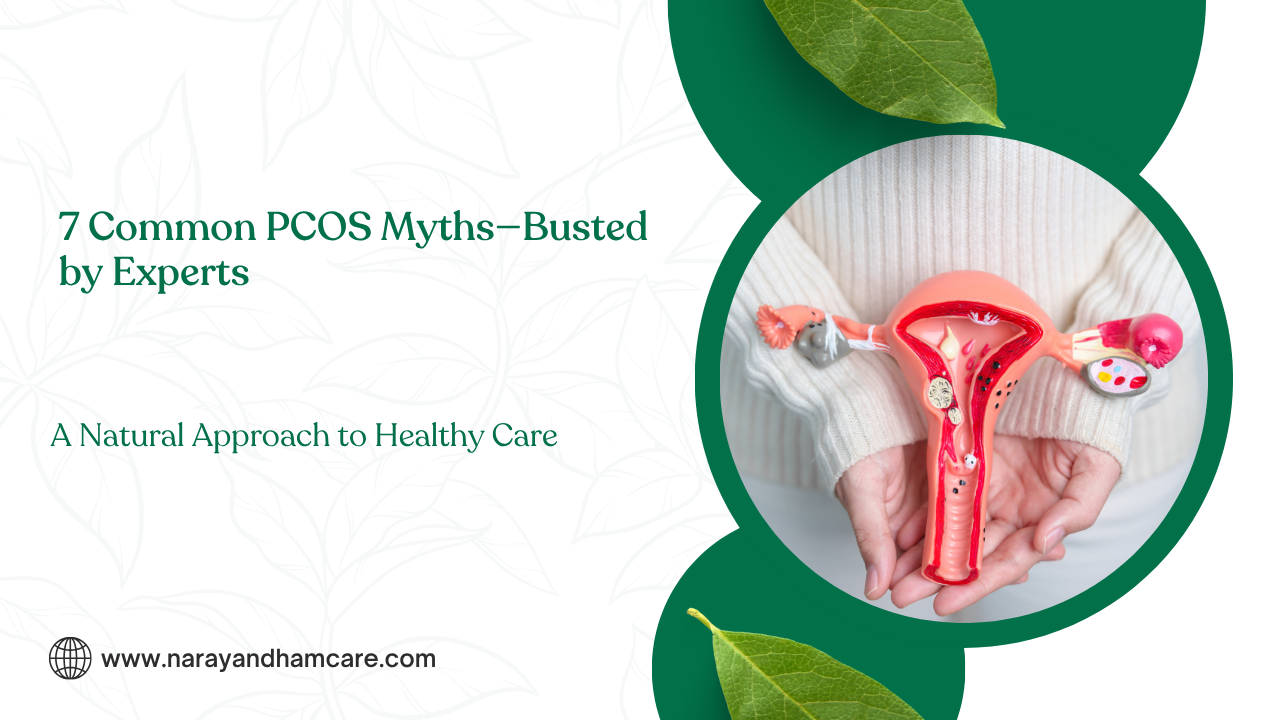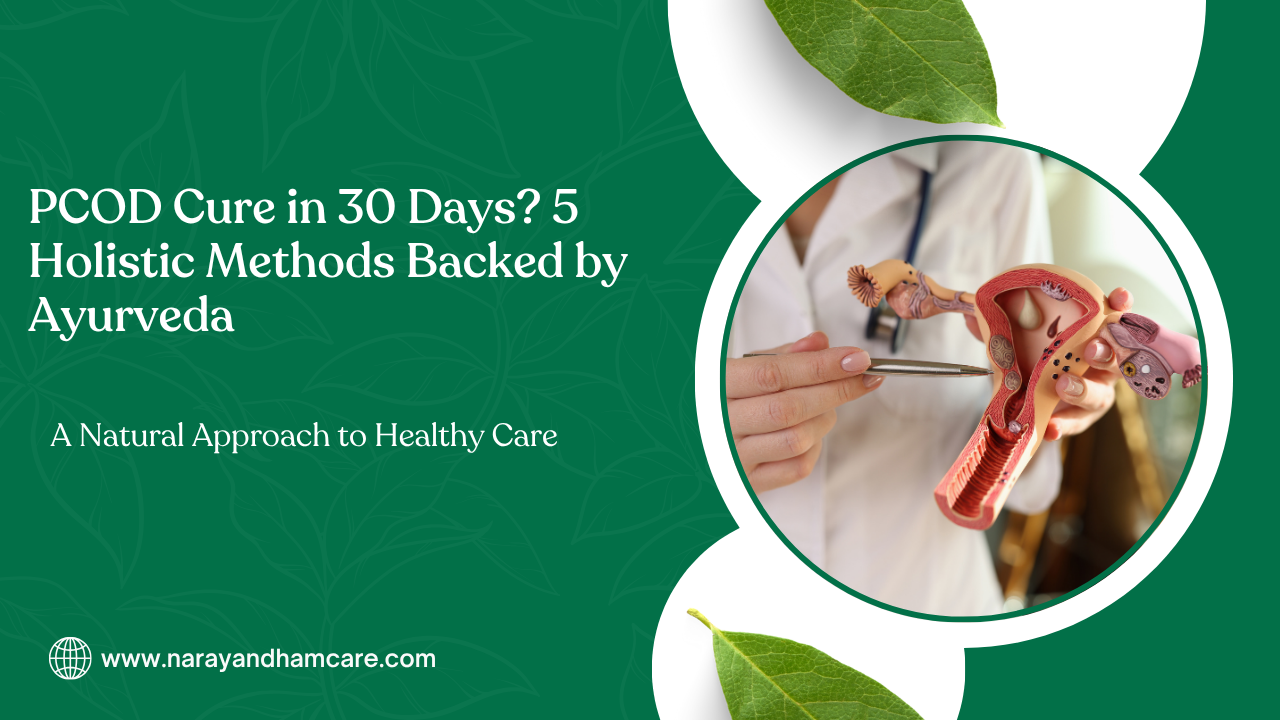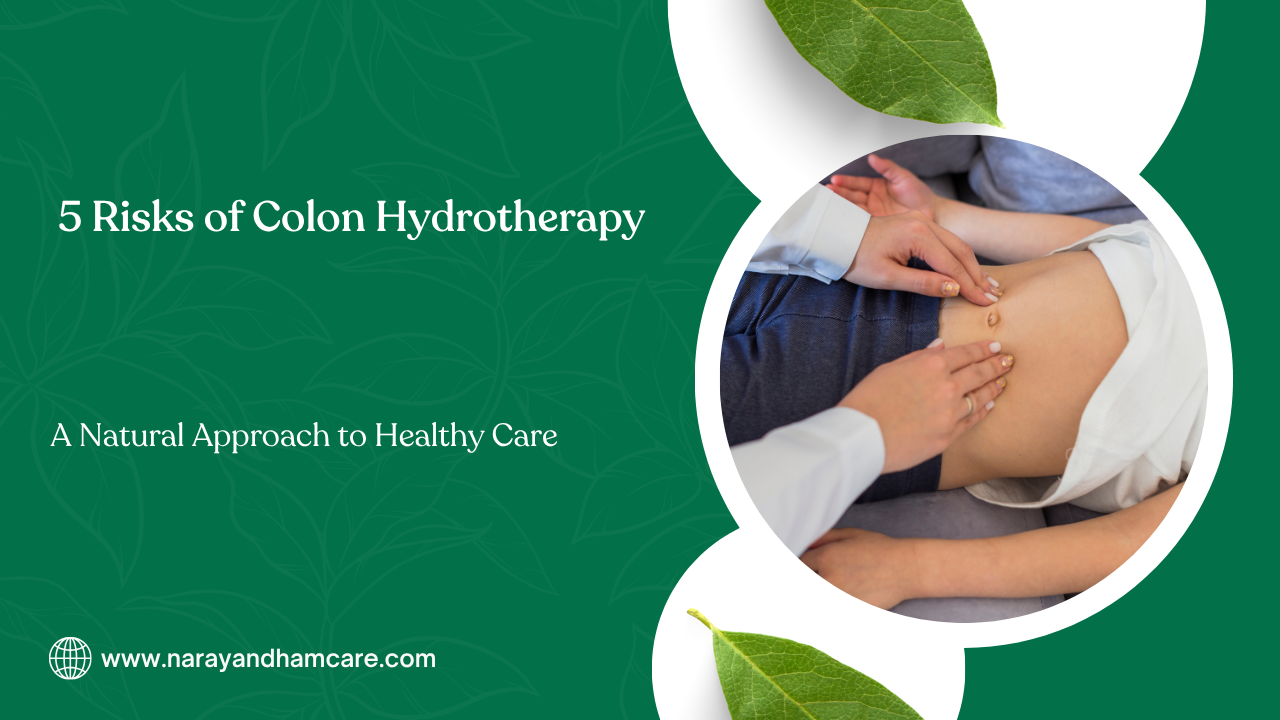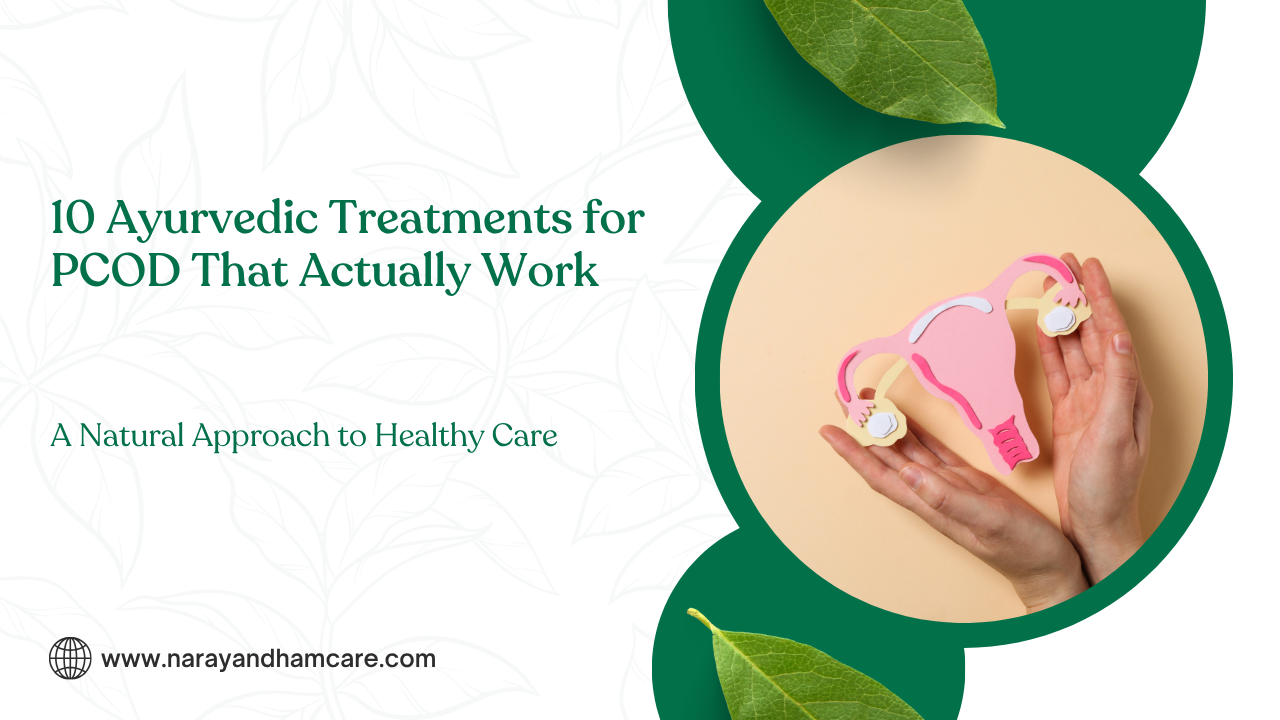PCOS Introduction
Polycystic Ovary Syndrome, is one of the most common hormonal disorders affecting women today. It can cause problems like irregular periods, weight gain, acne, and difficulty getting pregnant. But along with these symptoms, there’s also a lot of confusion and myths.
Many people still believe wrong things about this condition, and these myths can cause fear, shame, and delay in treatment. That’s why it’s very important to know the facts and bust the myths.
In this blog, we will explain the 7 most common myths and share what experts say. If you or know someone who does, this information can help you feel more confident and informed.
Problem
affects 1 in 10 women worldwide, and the number is growing. But the biggest problem is lack of awareness and wrong beliefs. Because of these myths:
- Women feel hopeless about their health or fertility
- They try wrong diets or treatments
- Many don’t seek medical help in time
- Mental health issues like anxiety and low self-esteem increase
The result? Women suffer more than they need to. Knowing the truth about is the first step toward healing and hope.
Symptoms
symptoms can vary from woman to woman. But here are the most common signs:
- Irregular periods or no periods at all
- Excess hair on face, chest, or back (hirsutism)
- Acne or oily skin
- Weight gain, especially around the belly
- Hair thinning or hair fall
- Dark patches on the skin (especially around neck and armpits)
- Trouble getting pregnant
- Mood swings, anxiety, or depression
Having one or two symptoms does not confirm, but if you have several, it’s good to get tested.
7 Common Myths—Busted
Let’s now bust the top myths with real facts from health experts.
Myth 1: PCOS means you’ll never get pregnant
Fact: Many women with PCOS get pregnant naturally or with help.
- affects ovulation, but it can be managed
- A healthy lifestyle improves fertility
- Ayurvedic and modern treatments support pregnancy
- Timely care increases chances of natural conception
Myth 2: You must be overweight to have PCOS
Fact: affect women of all body types.
- Even slim or underweight women
- Lean is a type where women look slim but have hormonal issues
- Weight is just one part of the condition, not the only cause
Myth 3: PCOS is just a period problem
Fact: a hormonal disorder that affects more than periods.
- It can cause skin issues, hair problems, and mood swings
- It increases risk of diabetes, high blood pressure, and infertility
- Mental health can also be affected due to hormone imbalance
Myth 4: You can cure PCOS completely
Fact: no “cure” but can be reversed or managed.
- With lifestyle changes, symptoms can disappear
- Healthy habits help balance hormones
- Many women live a symptom-free life with the right care
Myth 5: Birth control pills are the only solution
Fact: Birth control pills manage symptoms but don’t treat the root cause.
- Pills help regulate periods but may have side effects
- Natural healing through diet, exercise, and Ayurveda works well
- Addressing the root (insulin resistance, inflammation, etc.) gives better results
Myth 6: PCOS only affects young women
Fact: affect women at any age, even after 35 or during menopause.
- Symptoms may change with age but can still affect health
- Early diagnosis at any age is important
- Women should continue care even after childbearing years
Myth 7: You can’t live a normal life with PCOS
Fact: With the right steps, women with PCOS can live happy, healthy, and full lives.
- Many women manage naturally and have children
- Balanced lifestyle improves energy and mood
- does not define your future!
Solution: Simple Steps to Manage Naturally
Here’s how you can take charge:
1. Eat the Right Foods
- Choose whole grains, fruits, vegetables, and lean proteins
- Avoid sugar, fried foods, and processed snacks
- Use herbs like cinnamon, fenugreek, and turmeric
- Try Ayurvedic teas like spearmint and licorice root
2. Move Your Body Daily
- Do 30 minutes of yoga, walking, or any physical activity
- Try yoga poses like Malasana, Bhujangasana, and Setu Bandhasana
- Exercise reduces insulin resistance and helps weight balance
3. Reduce Stress
- Stress makes worse, so relax your mind daily
- Practice deep breathing, meditation, or journaling
- Spend time with nature or do a hobby you enjoy
4. Try Ayurvedic or Naturopathy Therapies
- Ayurvedic herbs like Ashwagandha, Shatavari, and Triphala balance hormones
- Therapies like Shirodhara, Basti, and Abhyanga improve reproductive health
- Always consult an expert before starting herbal remedies
5. Track Your Health
- Use apps to track periods and symptoms
- Go for regular check-ups with your gynecologist
- Keep a journal to stay aware of your body’s changes
Frequently Asked Questions (FAQ)
Q1: Can I get rid of PCOS forever?
A: There is no permanent cure, but with healthy habits, you can manage and reverse the symptoms.
Q2: How do I know?
A: Get a blood test and an ultrasound after checking symptoms. A doctor can confirm your condition.
Q3: Does PCOS mean I’ll get diabetes?
A: PCOS increases the risk of type 2 diabetes, but lifestyle control can prevent it.
Q4: Is it okay to try natural remedies without a doctor?
A: Always consult a doctor or Ayurvedic expert before starting herbs or therapies.
Q5: Can PCOS affect my mental health?
A: Yes, many women with feel anxiety or depression. Talk to a therapist if needed — mental health is important too.
Conclusion
something to be afraid of — but misinformation is. By learning the truth and busting these common myths, you can take back control of your health.
You don’t need to suffer silently or believe false stories. With knowledge, care, and consistency, be managed naturally.
If you found this blog helpful, please share it with your friends or loved ones.
Have a question or want to share your journey? Leave a comment below — we’re listening and here to support you.





